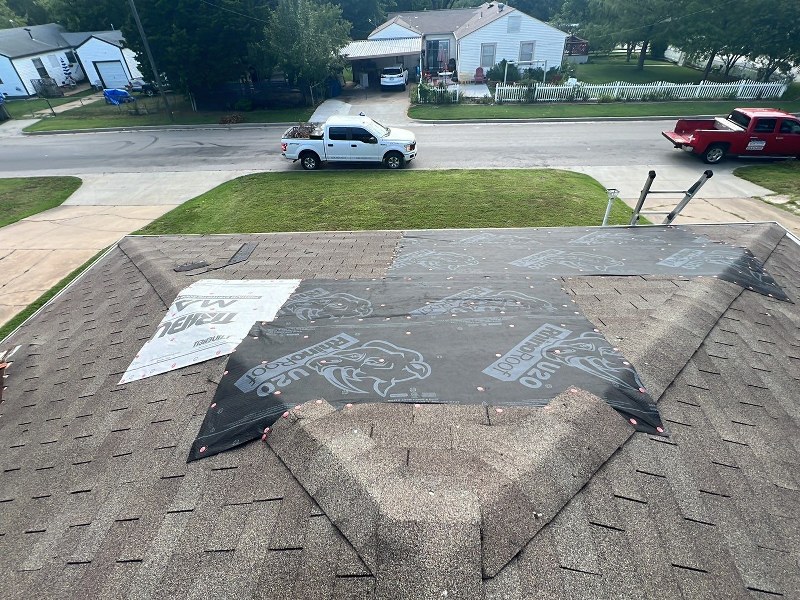Understanding the Tax Implications of Roofing Projects
Homeowners often wonder if the cost of roof repairs or replacements can be written off on their taxes. While most home improvement projects do not qualify for tax deductions, there are specific situations where roofing expenses may be deductible. The Roofing Guys in Tulsa, OK, explain the circumstances in which roof repairs or replacements may be tax-deductible, helping you make informed financial decisions.
Interesting Fact: According to the IRS, home improvements that increase the value, prolong the life, or adapt your home for new uses may not be immediately deductible but can add to your home’s cost basis, potentially reducing your capital gains tax when you sell your property.
When Roof Repairs Are Tax Deductible
- Rental Properties: If you own a rental property, the cost of roof repairs is considered a deductible expense. This is because the IRS allows property owners to deduct expenses incurred in maintaining and repairing rental properties, reducing taxable income.
- Home Office Deduction: Homeowners who use part of their home exclusively for business purposes may qualify for a home office deduction. In this case, a portion of your roofing repair expenses may be deductible, based on the percentage of your home used as a home office.
- Example: If your home office occupies 10% of your home’s total square footage, you can deduct 10% of the roofing repair costs.
Pro Tip: Always keep detailed records of roofing expenses, invoices, and receipts for tax purposes, especially if you qualify for rental property or home office deductions.
When Roof Replacements Are Tax Deductible
- Capital Improvements: While roof replacements are not immediately tax-deductible, they are considered a capital improvement. Capital improvements add value to your home, prolong its life, or adapt it for new uses. These expenses can be added to your home’s cost basis, which may reduce capital gains tax when you sell your home.
- Example: If you spend $10,000 on a roof replacement, you can add this amount to your home’s original purchase price, lowering your taxable profit when you sell.
- Energy-Efficient Roofs: The federal government offers tax credits for energy-efficient home improvements, including certain roofing materials. If you install an energy-efficient roof that meets the IRS’s criteria, you may be eligible for a tax credit of up to 10% of the cost, up to a maximum of $500.
- Qualifying Materials: Reflective metal roofs and asphalt shingles with cooling granules designed to reduce heat absorption may qualify for the tax credit.
For more tips on how to save on roofing costs, read our article on Minimizing Aging Effects on Asphalt Shingle Roofs.
When Roofing Expenses Are Not Deductible
- Primary Residence Repairs: Roof repairs or replacements on your primary residence are generally not tax-deductible, as they are considered personal expenses. However, adding these expenses to your home’s cost basis can benefit you when you sell.
- Maintenance vs. Improvement: Routine maintenance, such as fixing a leak or replacing a few shingles, is not tax-deductible. Only improvements that increase the home’s value, prolong its life, or make it more energy-efficient may qualify.
How The Roofing Guys Help You Maximize Your Investment
As an IKO and GAF Certified roofing contractor, The Roofing Guys provide high-quality repairs and replacements that enhance your home’s value and efficiency. We offer expert guidance on selecting energy-efficient roofing options that may qualify for tax credits, ensuring you make a smart investment.
For additional insights on roof maintenance, check out our guide on The Impact of Trees on Your Roof and Home.
FAQs
Q1: How do I claim the energy-efficient roofing tax credit?
To claim the energy-efficient roofing tax credit, complete IRS Form 5695, Residential Energy Credits, and include it with your federal tax return. Be sure to keep receipts and the manufacturer’s certification statement.
Q2: Can I deduct roof repairs if I have a home-based business?
Yes, if you have a dedicated home office, you may be eligible to deduct a portion of your roof repair costs based on the percentage of your home used for business purposes.
Q3: How does a roof replacement affect my home’s cost basis?
A roof replacement adds to your home’s cost basis, which is the original purchase price plus any capital improvements. A higher cost basis reduces your taxable profit when you sell your home.
Conclusion
While roof repairs and replacements may not always be immediately tax-deductible, understanding the circumstances in which they can impact your taxes can help you make informed financial decisions. By working with The Roofing Guys, you can ensure that your roofing investment adds value and potentially offers tax benefits. Contact us today to discuss your roofing needs and explore options for energy-efficient roofing solutions.

